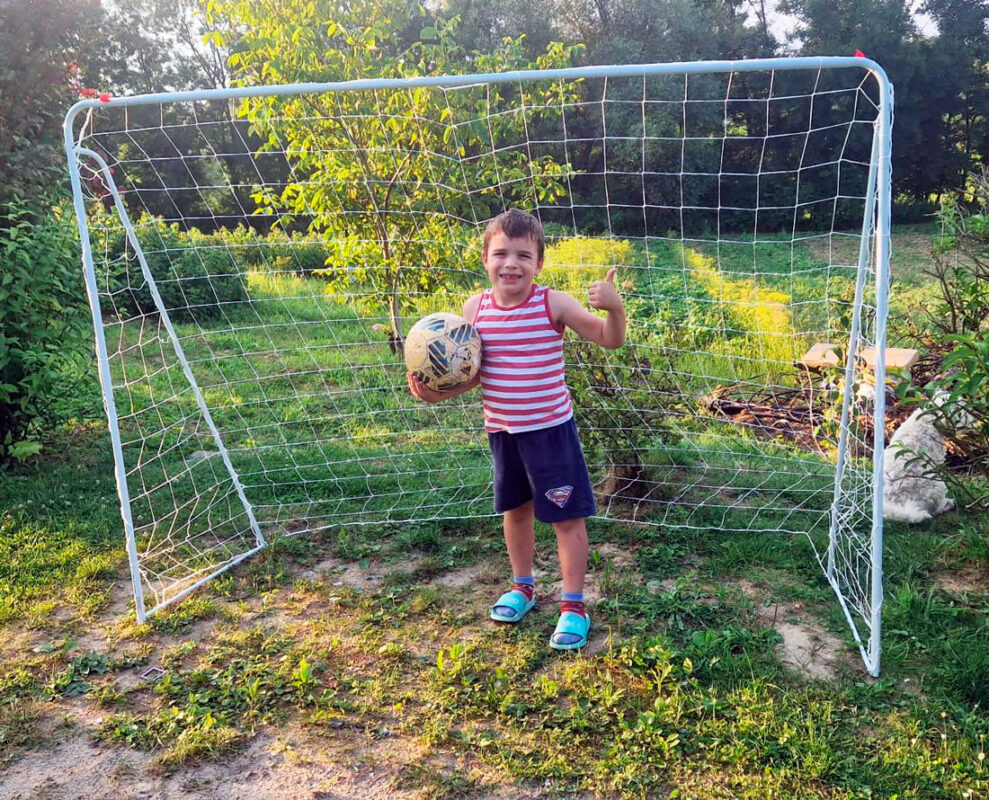Why lead an active lifestyle from an early age?
- Facilitates weight management. Physical activity results in a certain energy expenditure, which ultimately translates into maintaining the correct (recommended) body weight. Regular physical activity also helps to maintain muscle mass (this is due to the fact that mainly fat tissue is burned, not muscle tissue). Exercise also has a beneficial effect on the appearance of the entire figure.
- It has a beneficial effect on mental state. Lack of exercise is a risk factor for e.g. sleep disorders and anxiety-like symptoms. Systematic physical exercise is the most effective and also the cheapest way to keep the psyche in good condition. It is also important that movement counteracts stress and mental fatigue. In the social and mental sphere, it helps to acquire many qualities that are very important in the life of every adult: emotional balance, mental fortitude, the ability to mentally adapt to changing situations and resistance to stress. In addition, it models a sense of responsibility, discipline, tenacity in overcoming difficulties encountered and enhances the gradual assimilation of cultural values.
- Increases immunity. Regular, even moderate physical activity ensures the proper functioning of the immune system; it also reduces the risk of many infections.
- Positively influences concentration, memory and brain function in children, adults and seniors.
- Reduces the risk of diabetes and insulin resistance and facilitates their treatment by acting on hormone balance, and increasing tissue sensitivity to insulin.
- Reduces the risk of heart disease and death from cardiovascular disease; exercise leads to a reduction in typical cardiovascular risk factors: reduces obesity, lowers blood pressure, has a positive effect on the lipid profile and glucose tolerance, has a positive effect on the coagulation system, endothelial function, sex hormone levels, inflammatory processes, in addition to increasing the number of leukocytes, erythrocytes, haemoglobin and the oxygen capacity of the blood, and results in adaptation of the cardiovascular system to exercise.
- Counteracts some cancers (e.g. colorectal cancer).
- Positively affects bones, joints and muscles, improves mobility, fitness and flexibility of the body.
- Reduces the risk of neurodegenerative diseases in adulthood, including Alzheimer’s and Parkinson’s disease.
- Regular, moderate activity in correlation with recovery reduces the risk of injury and trauma.

Any type of physical activity will work just as well. Where can you start?
- Daily activity – getting to school, going out shopping, any activity can be seen as a way of taking care of your own health. If the distance is too far, you can get off a stop or two earlier (before your destination) and walk the last part of the way.
- Play – all children like to play. Take advantage of this and start convincing them to play actively. Where should you start? You could, for example, play hide-and-seek or tag with them. There are many possibilities. You should certainly listen to your child and provide forms of play which are as much fun as possible.
- Active leisure – free time is a great opportunity to spend time together and look after your fitness and health. For example, you could go to the forest to pick mushrooms or to the park for a walk. If you prefer water sports, a swimming pool or a trip to the lake (for example, to play football or go swimming) is a great way to spend some time together.
- Additional sports activities – if your child’s school PE classes are not enough or need to be expanded, consider enrolling your child in additional sports activities. This will help your child to get in shape and to catch up on all the things he or she needs to do quickly. In addition, he or she can make new friends there and have a good time. What should he decide on? Whatever gives him the most pleasure. In addition to this, it is also worth taking into account his/her predispositions and physical conditions.




























































